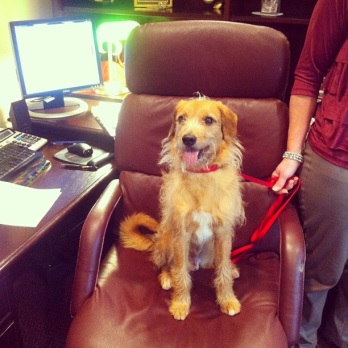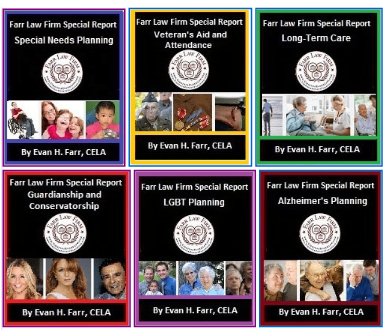Hospitals are Required to Train a Family Caregiver Prior to Discharge
Published: Fri, 08/28/15
 |
Hospitals are Required to Train a Family Caregiver Prior to DischargeIf you cannot view the image below, please read the article on our blog.
Photo from US News Q. My father, Marty, was in a serious car accident last year, where he broke several bones. During the week that followed his discharge from the hospital, my step-mother, Carolyn, struggled as she tried to get dad from the car to his wheelchair, and he ended up falling on his head and having a concussion. According to Carolyn, nobody at the hospital explained to her how to transport dad safely or what to do after they left. I can't fathom how a hospital can just discharge someone without training the caregiver on follow-up care and treatment. Especially in cases where a lay person is tasked with administering medication and treating wounds. Are there any laws that require hospitals to train a designated caregiver before a person is discharged? ----- A. Currently, as many as 42 million Americans take care of a family member at any given time. Traditionally, these family caregivers provide loved ones with assistance in bathing, dressing, eating, shopping for groceries, managing finances, and more. But as the number of seniors with chronic conditions has grown, family caregivers have taken on medical tasks once provided only in hospitals, nursing homes, or by home care professionals. In fact, nearly half of family caregivers administer multiple medications, treat wounds, or operate specialized medical equipment, according to an AARP survey released in 2012. Despite frequent emergency department visits and overnight hospital stays, few of the survey respondents reported receiving any assistance or training from health professionals. With the new responsibilities of caregivers to take on certain medical tasks, a law took effect in Oklahoma last year, requiring hospitals to train a designated family caregiver to tend to the medical needs of a released patient. Since then, 12 more states (Arkansas, Colorado, Connecticut, Indiana, Mississippi, New Hampshire, New Jersey, New Mexico, Nevada, Oregon, Virginia, and West Virginia) have followed suit, approving Caregiver Advise, Record, Enable (CARE) laws. While the laws and legislation will differ in certain states, all contain three requirements: • The name of a family caregiver is recorded when someone is admitted to a hospital or rehabilitation center; • The caregiver is notified if the patient is going to be released or transferred to another facility; • The facility must provide information and personal instruction on how the caregiver will manage medical and physical tasks, such as medication, injections, caring for wounds, use of medical equipment, and moving the family member. Local CARE Laws In Virginia, House Bill 1413 and Senate Bill 851 require hospitals to notify family caregivers when their loved one is being discharged from the hospital and provide instruction on how to do the required medical tasks at home. The bills passed the house and the senate in February, and the law was approved by the governor on March 16. The summary of the law, as passed, is as follows: Hospital discharge procedures; designation of individual to receive information and instructions. Requires hospitals to provide each patient admitted as an inpatient or his legal guardian the opportunity to designate an individual who will care for or assist the patient in his residence following discharge from the hospital and to whom the hospital shall provide information regarding the patient's discharge plan and any follow-up care, treatment, and services that the patient may require. This bill is identical to SB 851. In Maryland, SB 572 is currently under consideration, with an unfavorable review by the state's Finance Committee. No details could be found on CARE laws being enacted in DC. Why are CARE Laws Important? Patients stand the risk of ending up back in the hospital if their recovery isn't handled properly. In fact, one of the factors contributing to high readmission rates is inadequate coordination and follow-up care in the community, according to the federal government. A 2013 report by the Robert Wood Johnson Foundation found that in 2010, one out of eight Medicare patients was readmitted to the hospital within 30 days after surgery. For non-surgical patients, the percentage was nearly one in six. The numbers do not include readmissions for Medicaid and private insurers, which are also “high.” CARE laws help prevent readmissions by ensuring that discharge instructions are provided. What if You End Up in the Hospital? Serious car accidents, strokes, or other instances that require medical care are never planned for, as you can see from the unfortunate situation with your father. This is why thought needs to be given (in advance, if possible) to what your preferences are for how care will be delivered. Will it be at home, an assisted living facility, or a nursing home? Of course, you cannot predict the exact outcome of your long-term care needs, but before anything happens, it is a wise idea to start a discussion now with the people who might be involved in helping to coordinate your care needs in the future, and include your preferences in your planning documents. Planning for Long-Term Care Medicaid planning can be started while a person is still able to make legal and financial decisions, or can be initiated by an adult child acting as agent under a properly-drafted Power of Attorney, even if a person isalready in a nursing home or receiving other long-term care. Please visit our Website for more details on Lifecare Planning and Medicaid Asset Protection Planning. If you or your loved ones have not done Long-Term Care Planning, Incapacity Planning, or Estate Planning, please call us as soon as possible to make an appointment for a no-cost consultation: Fairfax Elder Law Attorney: 703-691-1888
Fredericksburg Elder Law Attorney: 540-479-1435
Rockville Elder Law Attorney: 301-519-8041
DC Elder Law Attorney: 202-587-2797
-------- Things You Can Do to Relieve Caregiver Stress
 Dear Baxter,
Being a caregiver for my father with Alzheimer's is both rewarding and stressful. I want to take care of myself, but I don't know where to go for help, nor do I have the money to spend. What are some inexpensive ways to relieve caregiver stress?
Thanks!
Ali Veates-Tress
----
Dear Ali,
Caring for a loved one can indeed be stressful, especially if you aren't taking advantage of all the helpful resources that are out there. One study found that as many as one in three caregivers rate their stress level as high, and half say they have less time to spend with family and friends.
Below are some ideas and resources for alleviating caregiver stress:
-Free, nonprofit caregiving resources include, but are not limited to: Caregiver Action Network, National Alliance for Caregiving, Family Caregiver Alliance, National Volunteer Caregiving Network, or the Rosalynn Carter Institute for Caregiving. The U.S. Department of Veterans Affairs, or VA, also has a Caregiver Support Program. You can learn more about local resources on the Eldercare Locator Website or by reaching out to your local Area Agency on Aging. -Caregiver retreats: Caregiver retreats provide another outlet, and can be found through the Family Caregiver Alliance and other caregiving organizations.
-Respite weekends: Well Spouse Association, a spousal support organization, offers respite weekends to its members, who pay a $30 annual membership fee.
-Outings with loved ones: If you are looking for something to do with your father, local chapters of the Alzheimer's Association offer free social outings that Alzheimer's patients and caregivers attend together. Alzheimer's Association events in the past have
included private guided museum tours, tickets to a musical production, and clay pottery-wheel classes.
-Paid Respite (Federal): The National Family Caregiver Support Program provides federal funds to state Area Agencies on Aging to help caregivers better manage their responsibilities to keep their loved ones at home, including paid respite. To qualify,
caregivers must be 18 or older, must be unpaid by the patient, and must be caring for a loved one age 60 or older, or of any age if they have Alzheimer's disease or related disorders. Respite care ranges from several hours in an adult day care center or in the patient's own home, to several days in a respite-approved facility.
-State Lifespan Respite Care Programs, available in 32 states and the District of Columbia, provide "coordinated, community-based respite for family caregivers caring for individuals with special needs of all ages."
-Respite for Veterans: In addition, through the VA, veterans are eligible to receive up to 30 days of respite care annually while the family caregiver takes a break.
-Hospice patients receive up to 5 days of respite care paid for by Medicare at an approved facility. Medicaid patients also qualify for paid respite, usually through an adult day care program.
-Training classes: Caregivers can access free training classes through a local Area Agency on Aging, including the 6-week program known as "Powerful Tools for Caregivers." This program teaches caregivers how best to take care of
themselves. Local chapters of the Alzheimer's Association also offer free caregiver training classes, such as the Savvy Caregiver Program, a 12-hour class conducted over 7-weeks designed for family caregivers of individuals with Alzheimer's or related dementia.
-Technology to help with caregiver scheduling: "Let us know what we can do to help" is a common sentiment expressed by friends and family, but it's often turned down by caregivers who don't want to burden other people. So they end up isolating themselves when they should be saying 'yes.'
Websites, such as Lotsahelpinghands.com and apps, such as CareZone and Unfrazzle, can provide help with caregiving scheduling.
Hope these resources are helpful for you!
Arfs and kisses,
Baxter
-------- |
|
||
|
This email was sent to
.
|










